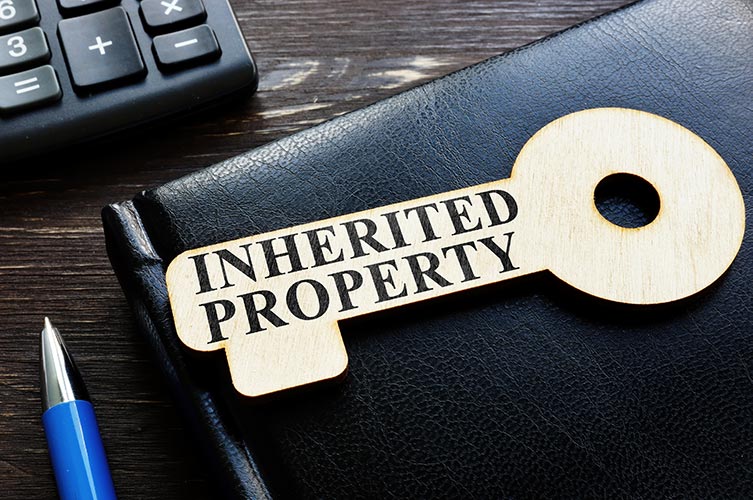
Inheriting real estate after a loved one dies can be a financial windfall – but it also can bring about some hefty tax liabilities. Assessing your new financial position with experienced financial professionals and understanding your options can help beneficiaries of inherited property avoid putting themselves in situations where they owe the Internal Revenue service a large sum for capital gains taxes.
In this article we’ll look at some of the potential tax implications on inherited property and also discuss whether beneficiaries can complete a 1031 exchange to defer their tax burden.
Potential Tax Liabilities on Inherited Property
Real estate is a common asset to pass to beneficiaries through inheritance. Fortunately, most Americans don’t have to worry about paying an estate tax – single taxpayers can claim a lifetime federal estate tax exemption of $11.7 million for 2021, a sum that’s doubled for married couples. That number rises to $12.06 million and $24.12 million for married couples for the 2022 tax year.
Several states do have an estate tax, though, and some states also levy an inheritance tax, so make sure you have a conversation with your tax professional about potential tax liabilities if you stand to inherit some property or other significant financial assets. Lastly, estate taxes are paid by the decedent’s estate, while inheritance taxes are paid by beneficiaries.
There are other potential tax liabilities when you inherit real property, and those taxes depend entirely on what you plan to do with the asset.
Capital Gains Taxes on Inherited Property
When you inherit real property assets upon the owner’s death, you’ll receive them on a stepped-up basis. This means that regardless of the property’s cost (basis) when the owner purchased it, you’ll inherit it at current fair market value. A step-up in basis can potentially eliminate accumulated capital gains for assets that have seen significant appreciation in value over time, as well as wipe out any deferred capital gains if the owner previously completed a 1031 exchange.
Your plans for the asset after inheriting it, however, may generate a taxable event. If you hold the property as an investment and rent it out, you won’t pay any capital gains taxes until you sell it – provided the asset increases in value after the step-up in basis. Heirs of inherited property often wish to liquidate the asset to increase their financial strength through the sale proceeds. You’ll have to pay capital gains taxes on any profits that exceed your stepped-up basis.
1031 Exchanges and Inherited Properties
You can complete a 1031 exchange and defer capital gains taxes on inherited property, but unless you hold the asset for a number of years there’s not much of a case to do so since you just received the property at a stepped-up basis that likely eliminated much of the capital gains associated with the asset.
For instance, say your father purchased a duplex 15 years ago for $1 million and the asset now is worth $5 million at fair market value. If he bequeathed it to you, the $4 million capital gains is eliminated through the step-up in basis. If you want to sell immediately, you likely won’t realize much profit above that $5 million. If you hold the property for a number of years you can complete a 1031 exchange on the asset to defer capital gains taxes. However, you’ll have to reinvest the entire proceeds of the sale without taking receipt of any funds, so if you are looking for a significant financial boost, this probably isn’t your best course of action.
The way your inherited property is titled also can make a big difference in a 1031 exchange. The taxpaying entity listed on the deed must be the same entity that completes the exchange, so if there are multiple property owners each party must agree to the exchange. If one person wants to cash out of the asset, you’ll have to buy out their interests or pursue a similar course of action prior to starting an exchange.
The Bottom Line
Completing a 1031 exchange on inherited property can be prudent if you held the asset for a number of years and realized a significant increase in value. However, complications can arise if there are multiple stakeholders in the property. Discussing your situation with a 1031 exchange specialist and experienced tax professional can help you determine your best course of action for pursuing a 1031 exchange.
This material is for general information and educational purposes only. Information is based on data gathered from what we believe are reliable sources. It is not guaranteed as to accuracy, does not purport to be complete and is not intended to be used as a primary basis for investment decisions. It should also not be construed as advice meeting the particular investment needs of any investor. Realized does not provide tax or legal advice. This material is not a substitute for seeking the advice of a qualified professional for your individual situation. Costs associated with a 1031 transaction may impact investor’s returns and may outweigh the tax benefits. An unfavorable tax ruling may cancel deferral of capital gains and result in immediate tax liabilities.



